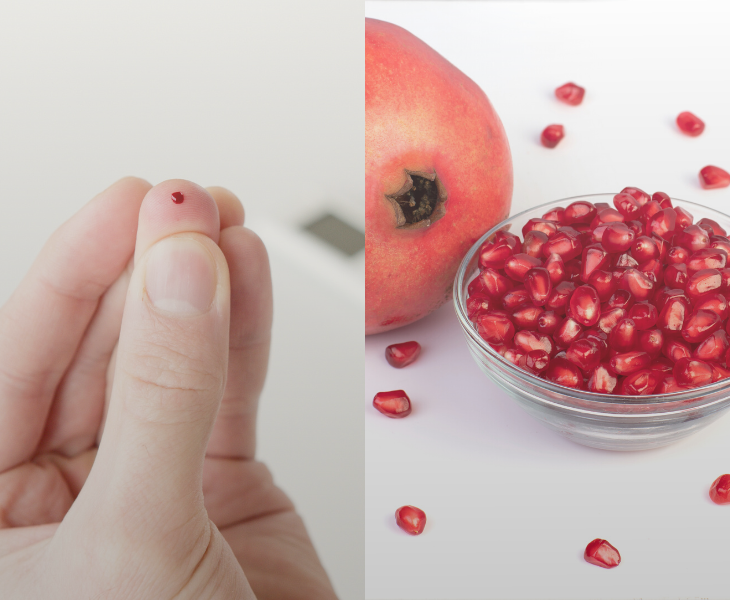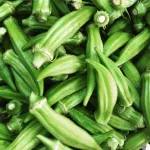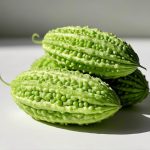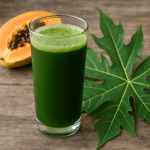Blood clots are a crucial component of wound healing, both internally in blood vessels and externally at the sites of injury. When you suffer an injury, your blood turns from liquid to partly solid, forming gel-like collections in your arteries or veins. However, a blood clot can be extremely harmful if it prevents blood from getting to vital organs or tissues when a blood clot develops in an unintended location and results in a cardiac arrest, stroke, or other grave medical issues.
Blood-thinning drugs may be necessary for people with certain medical disorders, such as heart conditions, in order to lower their heart attack risk or stroke. Your doctor would likely recommend a blood-thinning medicine if you have a high probability of getting blood clots.
Although these medications help lower the risk of blood clots, they have substantial adverse effects and neglect to address numerous underlying risk factors.
Naturally occurring blood thinners may also aid in the prevention of blood clots. These incredible blood clot-preventing foods may function naturally as blood thinners and may lower the risk of clots.
What Are the Blood Clot-Preventing Foods That You Should Eat?
Garlic
Garlic is believed to have a variety of health advantages, including the potential to disperse potentially dangerous platelet clumps in the bloodstream.
Garlic Powder and Garlic Oil, both of which are odorless, have been shown to have antithrombotic actions, according to a study that was housed in the National Library of Medicine.
A drug known as an antithrombotic agent works to prevent blood clots from forming. If you already use prescription blood thinner, eating less garlic is a safer option.
Ginkgo biloba
A native of China, the ginkgo biloba is frequently referred to simply as ginkgo. Ginkgo biloba tree leaves have been employed by traditional Chinese medicine practitioners for thousands of years.
Stanford Medicine claims that numerous substances in ginkgo biloba suppress platelet activation and aggregation, as well as encourage the dissolution of blood clots.
You should refrain from taking Ginkgo biloba if you take a prescription blood thinner, such as aspirin, coumadin (Warfarin), or clopidogrel (Plavix).
Turmeric
Turmeric, a golden spice that has both culinary and medicinal uses, has been used by humans for a very long time. The active ingredient in turmeric, curcumin, may have some anti-clotting properties.
Studies on animals and in the lab have shown that it may have antithrombotic properties. Curcumin is anti-inflammatory and reduces oxidative stress, in accordance with the National Library of Medicine.
Ginger
![[Revealed] 13 Amazing Blood Clot-Preventing Foods 2 Ginger Blood Clot Preventing Foods The PlantTube](https://theplanttube.com/wp-content/uploads/2022/12/Ginger-Blood-Clot-Preventing-Foods-819x1024.jpg)
In addition to being used as a culinary spice and medicinal herb, ginger has been shown in studies to have cardioprotective effects on lipid levels, inflammatory cytokine levels, blood pressure, and platelet aggregation.
It contains salicylate, a natural acid that helps blood coagulate by triggering the production of specific clotting components.
According to a National Library of Medicine observational study, more research is required to clarify ginger’s impact on blood coagulation.
Cayenne peppers
Salicylates, which are abundant in cayenne peppers and have potent blood-thinning properties, are another component. Additionally, it strengthens the capillaries and arteries.
The chemical ingredient capsaicin, which is found in cayenne pepper, has been shown in a study published in 2017 in the International Journal of Current Advanced Research to improve blood circulation and aid in the prevention of blood clots.
Cinnamon
People from all around the world have been using the powerful spice cinnamon for medicinal purposes even since ancient times. There contains coumarin, which is a powerful blood thinner that may be found in cinnamon.
Additionally, cinnamon can be used to manage blood pressure and lessen arthritis-related inflammation. However, consuming coumarin-rich cinnamon over an extended period of time can harm the liver, according to BIMC Hospital.
Cinnamon is one of many natural blood thinners, thus it is best to take it in only very modest amounts while concurrently taking other natural blood thinners.
Fish Oil
![[Revealed] 13 Amazing Blood Clot-Preventing Foods 3 Fish Oil Blood Clot Preventing Foods The PlantTube](https://theplanttube.com/wp-content/uploads/2022/12/Fish-Oil-Blood-Clot-Preventing-Foods-1024x576.jpg)
Thrombotic events like heart attack, stroke, and deep vein thrombosis are reduced by fish oil and omega-3 fatty acids. Some types of fish, as well as the oil that is extracted from those species, include lipids that are beneficial to human health and that experts recommend individuals include in their diets on a regular basis.
The National Library of Medicine states that human clinical trials conclusively demonstrate the antiplatelet effects of marine omega-3 fatty acids. In other words, it stops platelets from congregating and producing blood clots. Fish oil does have some advantages, but they are not always obvious, and they can also have unpleasant side effects.
Willow Bark
Salicin, a salicylate derivative found in willow bark, explains why it has blood-thinning characteristics. Willow bark is used for a wide variety of ailments, however, there is little to no scientific evidence supporting its usage for anything from back pain to osteoarthritis to the flu to muscle discomfort.
According to the Karaelmas Science and Engineering Journal, the pro-drug salicine, which is present in very small amounts in willow species, is converted after absorption into a variety of salicylate derivatives. Salicylate-containing herbs aid in lowering platelet aggregation and preventing blood clotting.
Grape Seed Extract
The bitter grape seed is removed, dried, and ground into grape seed extract (GSE), a dietary supplement. Grape seeds include a high concentration of polyphenols, which have beneficial effects on health due to their ability to reduce oxidative stress, reduce inflammation, and protect the cardiovascular system.
A study by the National Library of Medicine found that incubating whole blood with GSE reduced the aggregation caused by ADP. The use of GSE is typically considered to be risk-free and to have relatively few adverse effects.
Pomegranate
Antioxidant, viral, and tumor-fighting properties are all present in pomegranates. Vitamins A, C, E, and folic acid are all abundant in them. Compared to wine or green tea, this “super fruit” has three times as many antioxidants.
Consuming pomegranate seeds is beneficial for avoiding the formation of blood clots because they prevent the platelets in the blood from sticking together and coagulating. Citation taken from the JUST AGRICULTURE e-Magazine Pomegranate contains antioxidants that have been described as a “thinner for your blood.”
Olive Oil
In observational and animal research, it has been discovered that olive oil lowers the risk of venous and arterial thrombosis. Unsaturated fats like extra virgin olive oil (EVOO), according to Canadian researchers at the Keenan Research Centre for Biomedical Science (KRCBS) at St. Michael’s Hospital in Toronto, can guard against the development of lethal blood clots that can result in strokes or heart attacks.
Dark Chocolate
![[Revealed] 13 Amazing Blood Clot-Preventing Foods 4 Dark Chocolate Blood Clot Preventing Foods edited scaled The PlantTube](https://theplanttube.com/wp-content/uploads/2022/12/Dark-Chocolate-Blood-Clot-Preventing-Foods-edited-scaled.jpg)
An increasing body of scientific evidence supports the idea that dark chocolate has health advantages. According to Johns Hopkins University researchers, eating a small amount of dark chocolate every day may help lower your risk of getting a blood clot. Some types of chocolate are healthier for you than others.
The dark chocolate bar, in comparison, has less sugar and a healthy amount of fat. Natural cocoa butter does not block arteries. Thus, a high-fat, antioxidant-rich meal reduces heart disease risk.
13. Tomato
The beloved tomato, which is used in many sauces and salads, could also be a powerful weapon in the battle for good health. Tomato juice may help type 2 diabetes patients avoid heart problems, according to little research.
The ability of the blood to clot was suggested to be diminished due to the juice in a research letter published in the Journal of the American Medical Association on August 18, 2004. Lycopene and other substances that lessen oxidative stress are abundant in tomatoes.
Final Thoughts
Many natural substances may reduce clotting to some degree. On the other hand, blood-thinning medications are likely to be more successful than natural therapies. If you already take blood-thinning medicine, you should always talk to your doctor about any dietary limitations you may have because some foods can affect how well your blood-thinning medication works.
Did you find this helpful? Let us know in the comments section.
To know more about plants and their health benefits, you can check out our Facebook and YouTube pages.
You might also like:


![[Revealed] 13 Amazing Blood Clot-Preventing Foods 1 5 Best Medicinal Uses of Safflower](https://theplanttube.com/wp-content/uploads/2021/04/5-best-medicinal-uses-of-safflower-300x247.webp)





